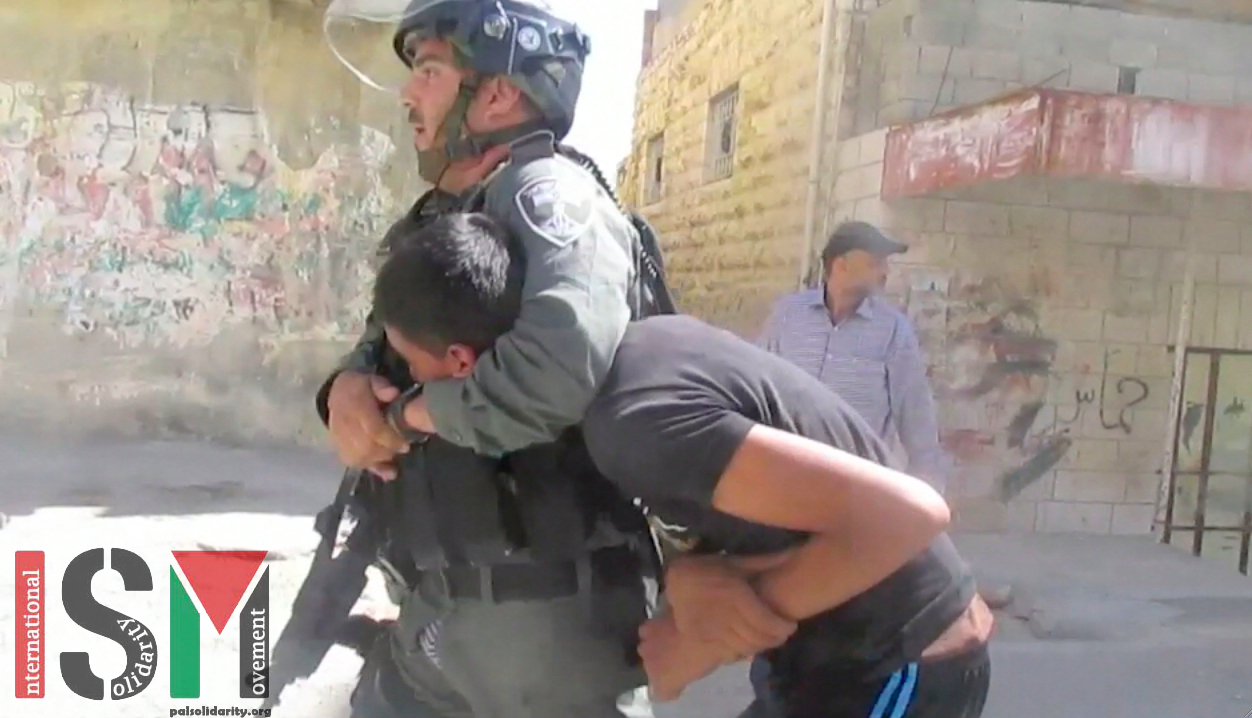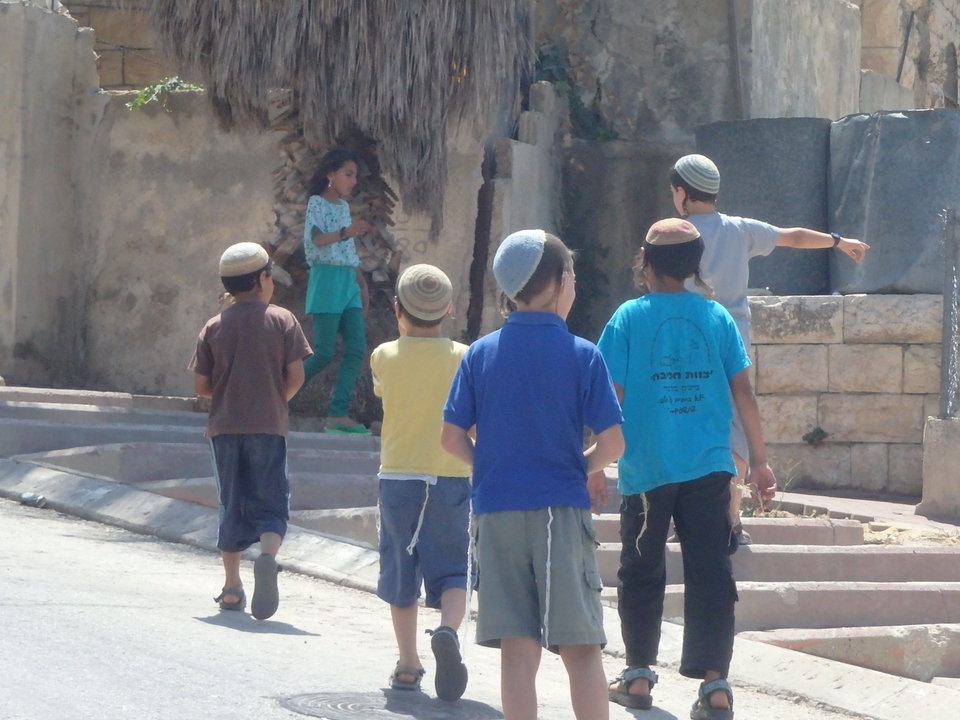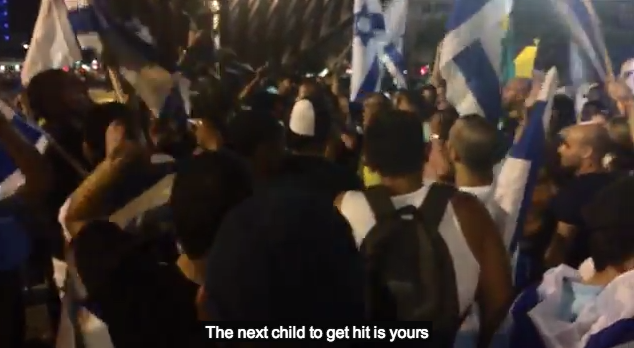Tag: Video
-
VIDEO: Israeli forces arrest two children and fire 29 rounds of tear gas at schoolchildren
23rd September 2014 | International Solidarity Movement, Khalil team | Hebron, Occupied Palestine Today at Salaymeh checkpoint in Hebron, Israeli forces fired 29 rounds of tear gas and 5 stun grenades at children going to school. The morning started off peaceful as children passed through the checkpoint but as word spread that two Palestinians had been…
-
Video: Free the bubbles
30th July 2014 | International Solidarity Movement, Khalil team | Hebron, Occupied Palestine At approximately 1 pm on July 28th, international volunteers made giant bubbles with Palestinian children to celebrate Eid, in Tel Rumeida, al-Khalil (Hebron). Several settlers passed by in their cars and were visibly annoyed, and two stopped to complain to the Israeli soldiers…
-
Video: Israelis in Tel Aviv chanting, “There’s no school tomorrow, there’s no children left in Gaza! Oleh!”
29th July 2014 | International Solidarity Movement | Tel Aviv, Occupied Palestine Israelis in Tel Aviv, on 26.7.2014, the 19th day of Israel’s massacres in Gaza, cheer the genocide on: “There’s no school tomorrow, there’s no children left there [in Gaza]! Oleh!” Every evening, in Tel Aviv, right wing marchers flood the streets, waving Israeli flags…



